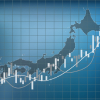Insights
On the Ground in Asia-Monthly Insights: Asian Fixed Income-April 2022
Increasing energy and food prices were the main factors that pushed most regional headline CPI prints higher in March. The Monetary Authority of Singapore aggressively tightened FX policy while China stepped up both monetary and fiscal policy support as the country struggled to contain its worst COVID-19 outbreak in two years.
Asian markets were downcast in April as investors were concerned about inflation and the likelihood of a larger-than-expected rate hike by the US Federal Reserve. For the month, the MSCI AC Asia ex Japan Index fell by 5.2% in US dollar (USD) terms.
New Zealand Fixed Income Monthly – April 2022
It has still been a tough year so far for New Zealand bonds amid pressure from inflation. That said, the market in New Zealand has been an outperformer among global peers since the beginning of 2022.
New Zealand Equity Monthly – April 2022
Despite fearmongering on demographics, Japan’s business has soared
Pundits need to be careful about scaring people regarding Japan and, thus, harming its economic future. This is especially true regarding recent high profile, wildly exaggerated tweets about demographics, a decades-old theme; clearly, this is a challenging theme, but Japan is certainly not going to disappear.
Global Unconstrained Bond Strategy Q2 2022 Outlook
We present our Q2 2022 outlook for the Global Unconstrained Bond Strategy which incorporates our core markets, emerging markets and global credit views.
Navigating Japan Equities: Monthly Insights from Tokyo (May 2022)
We discuss the implications of the weak yen, now considered by some as a menace rather than a blessing, for the Japanese market and economy. We also explain the potential impact of higher energy and commodity prices.
Ground-level observations from China
A trip back to China provided an opportunity to experience first-hand the impact innovative technology and digitalisation is having on a fast-changing urban society.
Balancing Act-Monthly insights: Multi-Asset Team-April 2022
Relief rallies are always encouraging but do not necessarily portray parting clouds for a return to “normal” market conditions. The market is still digesting a rather dizzying array of challenging dynamics that have unfolded quickly over the last quarter.
Global Equity Quarterly (Q1 2022)
We are keen to participate in the push towards a less carbon intensive future but want to do so in a balanced fashion, with one eye on the associated risks.















